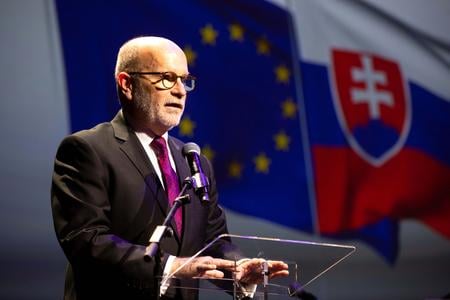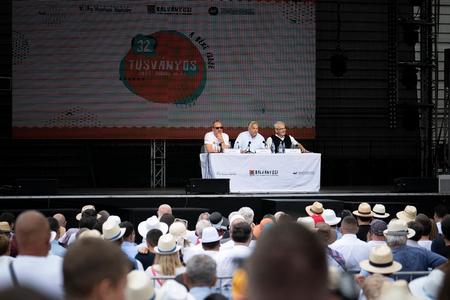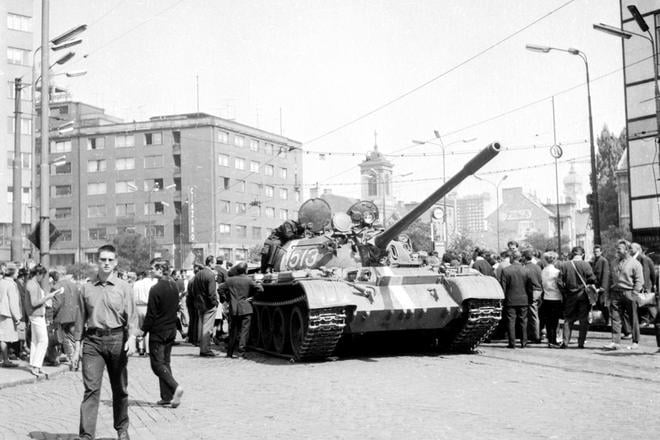55 years ago, on August 20-21, the Warsaw Pact troops launched an invasion of Czechoslovakia. Among them were troops from the Hungarian People's Republic. The event meant the end of liberal reforms known as the Prague Spring. The Hungarian soldiers withdrew from Czechoslovakia in October 1968.
According to Hungarian pro-government daily Magyar Nemzet, the country should have grabbed the opportunity and take back the southern Slovak regions that Czechoslovakia gained after the First World War.

Departure of troops the problem
According to the 1920 Treaty of Trianon, the former Kingdom of Hungary lost more than 70 percent of its territory.
However, after the Vienna Arbitration of 1938, Hungary annexed back parts of southern Slovakia inhabited by the Hungarian minority. The daily described this as "correcting the Dictate of Trianon by delineating a fair ethnic border". After the Second World War, the annexed parts returned to Czechoslovakia.
During the 1968 invasion, Hungarians in Slovakia welcomed Hungarian soldiers as liberators, states the pro-government daily in an article dedicated to the 55th anniversary of the invasion.
"The problem was not that the Hungarian army came, but that it left," the author of the article, Balász Ágoston, quotes a Hungarian teacher from Felvidék, a Hungarian term for the southern districts of Slovakia that used to be part of Hungary. The author adds that the teacher was right because he "looked at the 1968 events from the only healthy perspective - the Hungarian one".
According to Magyar Nemzet, is described as close to the current government of PM Viktor Orbán, Hungary should have "thrown off the shackles of unjustified, self-tormenting guilt" to help crush the Prague Spring and temporarily occupy part of the neighbouring country.
The newspaper claims that, unlike the Soviets, Hungary did not occupy Czechoslovakia. "Hungarian soldiers, based on historical law and justice, from the Hungarian point of view, could not be occupiers of the Upper Hungary territories, inhabited by Hungarians and separated by Trianon," the newspaper writes.
The daily echoes the rhetoric of Viktor Orbán. Speaking at a summer event held by the Hungarian minority in Romania in late July, he described Slovakia as a breakaway territory.

Reaction to reforms
In addition to Hungarians, troops from the Soviet Union, Poland and Bulgaria entered Czechoslovakia in 1968. After the invasion, Soviet soldiers remained in the country until 1991. The event was a response to a series of political and economic reforms happening in the late 1960s, spearheaded by Slovak politician Alexander Dubček.
What followed was a process of "normalisation". The new regime quickly moved in to consolidate power, curtail political freedoms, suppress dissent, enact even stricter censorship, revoke reforms and laws stemming from them.
In the aftermath of the invasion, several dozen people were killed, many more injured. Roads and houses were destroyed or damaged.


 A tank in Bratislava during the August invasion in 1968. (source: TASR )
A tank in Bratislava during the August invasion in 1968. (source: TASR )